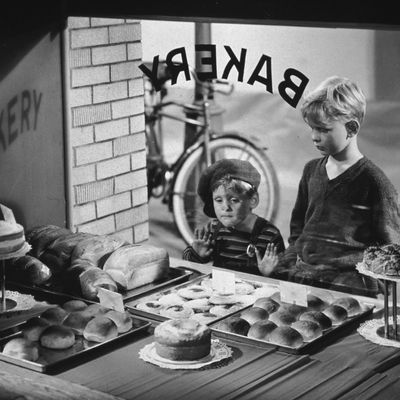
Within the first hour of your day, you will likely decide what to eat for breakfast, or whether to eat it at all. And with your breakfast – or in lieu of it — should you have hot coffee, or iced? With cream and sugar, or without? Should you make it at home, or purchase it on your way into work?
So many little decisions about food, all of which may be made before you’re even fully awake. On this week’s episode of NPR’s Hidden Brain podcast, Adam Brumberg of Cornell’s Food and Brand Lab tells host Shankar Vedantam that the lab’s research has shown people make, on average, about 200 decisions about what they eat every day. And most of these decisions, as Brumberg’s work has shown, are ones we make without consciously knowing we’re making them.
Brumberg and his colleagues have done all sorts of odd little studies demonstrating the way environment influences eating behavior; this is the lab that has found, for example, that people are so accustomed to eating popcorn in a movie theater that they will do so even if the popcorn is rather stale. But there are many similar findings, and in this episode Vedantam and frequent Hidden Brain guest Daniel Pink ran through some of the most recent ones:
People are more likely to order junk food when they’re feeling stressed. In a study led by Brumberg and his colleagues at Cornell, people who were feeling calmer tended to order healthier items, like salad or chicken, as compared to people who were primed into feeling frazzled, who ordered more desserts and fried foods.
Men eat almost twice as much pizza when eating with a woman than when eating with another guy. More specifically, a weird series of studies shows that both genders tend to eat more when dining with women. When women sat down for a meal with other women, they ordered 843 calories of food on average; when they ate with men, they ordered 721 calories. For men, eating with other men led to consuming 952 calories, but eating with women meant devouring 1,162 calories.
At restaurants, people are four times as likely to order dessert when their server had a high BMI than when their server had a low BMI. For this one, Brian Wansink — director of Cornell’s eating-behavior lab — and his colleagues visited about 50 restaurants across the U.S., including chains and independent eateries. Besides the dessert finding, they observed that people ordered more alcohol from heavier servers; the BMI of the restaurant-goers, on the other hand, didn’t make a difference in the food ordered.
A quick note: None of these studies imply causality — that is, the researchers did not test whether, for example, ordering from a heavier waiter caused people to order dessert. “What’s the causality here? I don’t know,” Wansink told Science of Us back in 2014. “But we always say, If you want to be slim, do what slim people do.”
To that end, there does appear a way to guard against the potential influence of these largely unseen environmental factors: Make your decisions in advance. For example, a recent study in the Journal of Consumer Psychology found that when dieters plan ahead for a “cheat day,” they do just as well in their diets as those who never cheat — and, perhaps more importantly, they also report being happier with their diets than the never-cheaters, which implies that they may be able to stick to the eating plan for longer.
Planning ahead, in other words, seems to provide at least some protection against the external forces shaping on-the-spot decision-making, and there is at least some evidence that people are happier when they choose this forward-thinking strategy. If (or when) you decide it’s time for some afternoon M&M’s, you may be happier with your snack if you plan it ahead of time, rather than if you drift on over to the vending machine at 3 p.m. out of habit.
It’s just very important to the staff of Science of Us that you are happy with your snacks.

